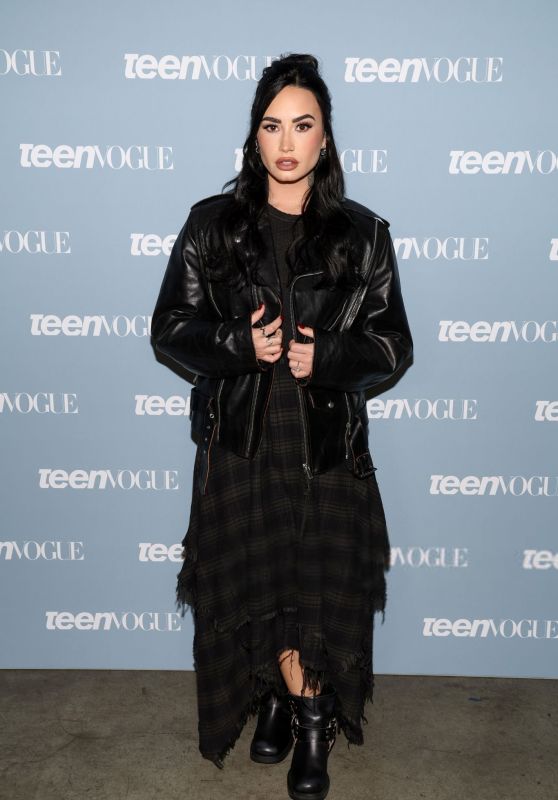Editor’s Note: This review was originally published during the 2024 Toronto International Film Festival. Disney releases the film in select theaters November 15 before streaming on Disney+ starts December 13.
Near the end of R.J. Cutler and David Furnish’s documentary “Elton John: Never Too Late” John says, “It did take me 43 years to learn how to function as a human being rather than a rockstar.”
However, the film, which premiered in the Gala section of the Toronto International Film Festival, is far more interested in the rockstar part of John’s life than it is in the human being portion. Look, it makes sense, the glittering glamor of superstardom is inherently more attractive than the day-to-day monotony of just trying to get by. Still, with the access this doc has — Furnish is, after all, John’s husband — it feels like a squandered opportunity.


At its outset, “Never Too Late” sets up an intriguing structure. It is going to document John as he prepares for the final stop on his farewell tour: Dodger Stadium, the venue that was the site of his incredibly famous 1975 outing, one that is both triumphant and emotionally fraught for the musician given how inexorably linked it is to a suicide attempt.
And yet the present day material is largely given the short shrift. Instead, “Never Too Late” is a competent but largely conventional look at John, which focuses on the most documented part of his life: His astronomical rise in the first half of the 1970s. With audio taken from an interview with journalist Alex Petridis, originally recorded when John was working on his memoir, the “Rocket Man” singer walks the audience through his difficult childhood, his collaboration with Bernie Taupin, his encounters with fame, his troubled relationship with manager and lover John Reid, his addiction to cocaine, and more. The part of the movie focused on his career essentially ends in 1976 with the Rolling Stone cover story in which he announced he was bisexual, before jumping ahead to explain how he got sober in 1990.
As John narrates, Cutler and Furnish supplement his stories with a host of archival imagery as well as some animation that evokes the style of the era. Think: “Yellow Submarine.” (That said, one animated sequence, which features John trying coke for the first time, does play strikingly like “Walk Hard.”) There are some detours within the history that feel especially intimate and entertaining, including a sequence where John discusses his friendship with John Lennon. However, mostly it just plays like a tale he’s told many times before.
Meanwhile, the footage taken during his “Farewell Yellow Brick Road” concert tour offers just tiny glimpses at the present day life of a world renowned artist. The moments that are revealing are fleeting. For instance, while hosting his Apple Music radio show “Rocket Hour” he is taken aback when his script tells him to introduce the country performer Allison Ponthier as a “queer” artist. Furnish explains how that’s now an accepted term rather than one laced with hostility as John might read it. It’s a peek into a generational divide felt by an LGBTQ+ elder statesman, but that is never really interrogated. In fact, John never seems too keen to analyze his place in the gay pantheon.
Elsewhere in the new material, we see John talking on a video call with his two young sons, and rehearsing his collaboration with Dua Lipa. Yet you can’t help but feel there was so much that might have been more intriguing left on the cutting room floor. We never really see his interaction with his band, nor get a look at the physical toll touring might take on him. And, despite the fact that Furnish is behind the camera, their love story and family life is referenced only obliquely.
The performance footage is obviously effective because, well, it’s footage of Elton John performing. It’s worth noting, however, you can already stream “Elton John: Farewell from Dodger Stadium” in full on Disney+, where “Never Too Late” will eventually live as well.
The countdown to the final Dodger Stadium performance feels like something of a misdirect, because there is never really much tension that must be associated with that date. There’s an ambling looseness to what we see that feels out of sync with the pressure the film itself is putting on that date, and similarly feels incongruous with the emotional rollercoaster of John’s early life. It arrives almost with a sense of relief. Perhaps that’s the very point: John, now a sober family man, is much more zen than he ever was. And yet it also somehow feels like the pacing is off, like this big moment is just another day at the office for him, and all the chaos is simply relegated to the past.
The story of Elton John is well told, most recently in the musical biopic “Rocketman,” starring Taron Egerton. “Never Too Late” is never particularly revelatory for those who are familiar with John, but there is a coziness to hear him recount his experiences. You just wish it had dug deeper. With someone as close to him as Furnish getting a directing credit, there might have been a real chance to see the human side of John, the man he evolved into when he says he left the rockstar behind.
Grade: B-
“Elton John: Never Too Late” world premiered at the 2024 Toronto International Film Festival. It will receive a limited theatrical release on November 15, before streaming on Disney+ December 13.
Want to stay up to date on IndieWire’s film reviews and critical thoughts? Subscribe here to our newly launched newsletter, In Review by David Ehrlich, in which our Chief Film Critic and Head Reviews Editor rounds up the best reviews, streaming picks, and offers some new musings, all only available to subscribers.






![Model Sydney J. Harper Brings Passion to Voiceless Charity Event in Nashville [11-18-2024]](https://celebmafia.com/wp-content/uploads/2024/11/model-sydney-j.-harper-brings-passion-to-voiceless-charity-event-in-nashville-11-18-2024-5_thumbnail.jpg)
![Sonya Starzhynska at “Voiceless” Charity Event [11-18-2024]](https://celebmafia.com/wp-content/uploads/2024/11/sonya-starzhynska-at-voiceless-charity-event-11-18-2024-3_thumbnail.jpg)

![Gemma Chan at TASAKI’s 70th Anniversary “Floating Shell” Exhibition [11-21-2024]](https://celebmafia.com/wp-content/uploads/2024/11/gemma-chan-at-tasaki-s-70th-anniversary-floating-shell-exhibition-11-21-2024-4_thumbnail.jpg)
![Ariana Greenblatt at “Death Becomes Her” Broadway Opening Night [11-21-2024]](https://celebmafia.com/wp-content/uploads/2024/11/ariana-greenblatt-at-death-becomes-her-broadway-opening-night-11-21-2024-1_thumbnail.jpg)
![Nina Dobrev at the F1 Grand Prix of Las Vegas [11-23-2024]](https://celebmafia.com/wp-content/uploads/2024/11/nina-dobrev-at-the-f1-grand-prix-of-las-vegas-11-23-2024-5_thumbnail.jpg)







 English (US) ·
English (US) ·